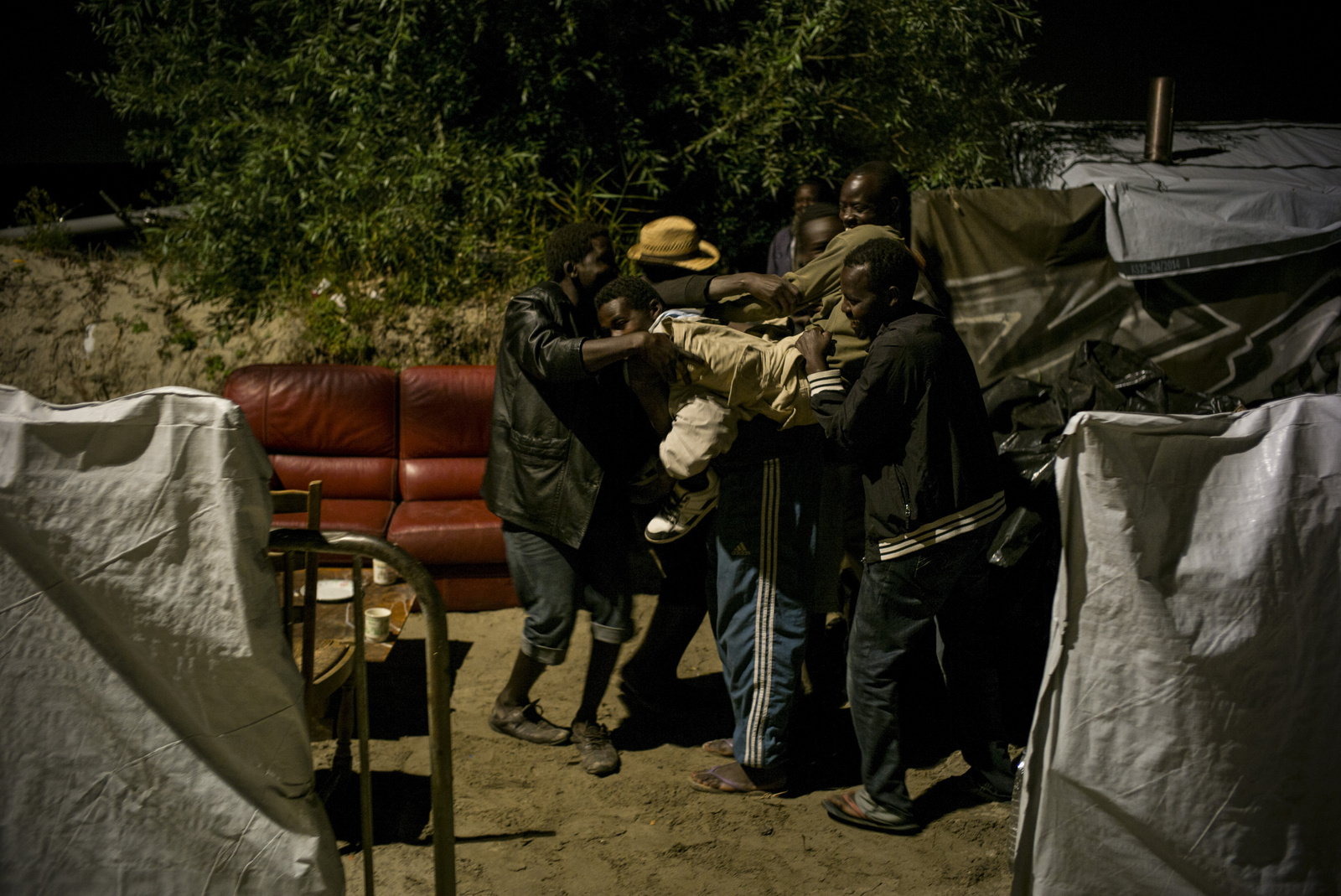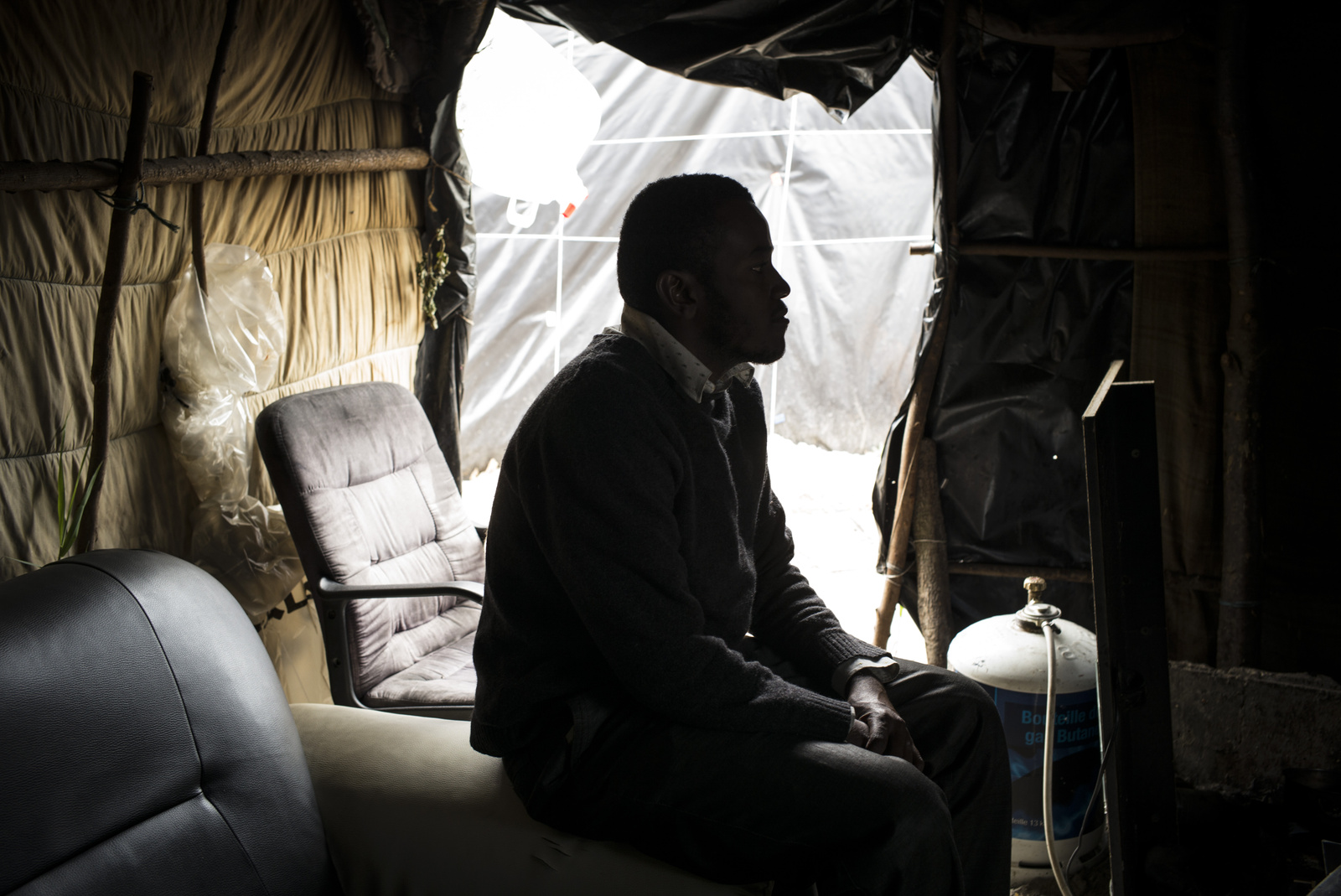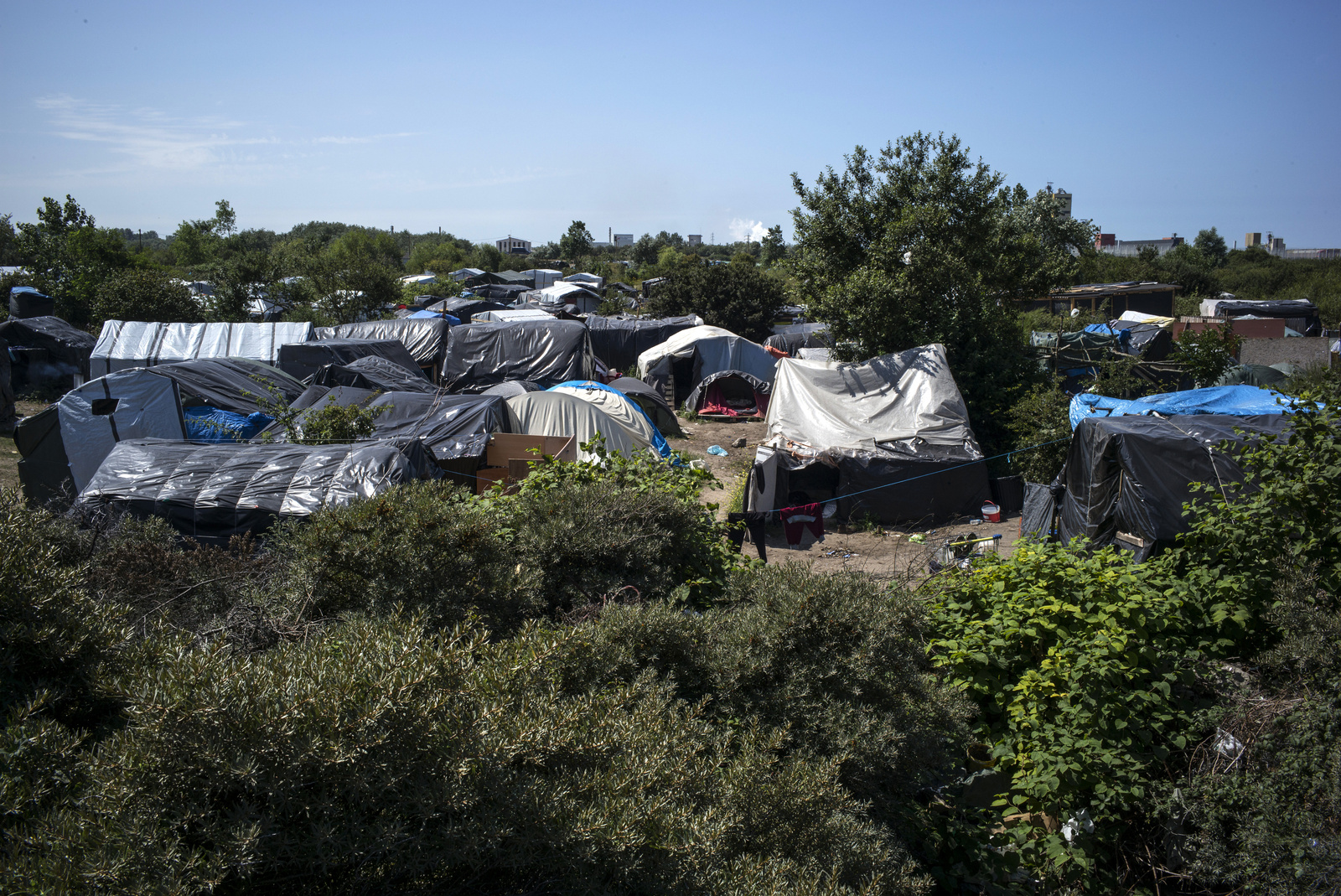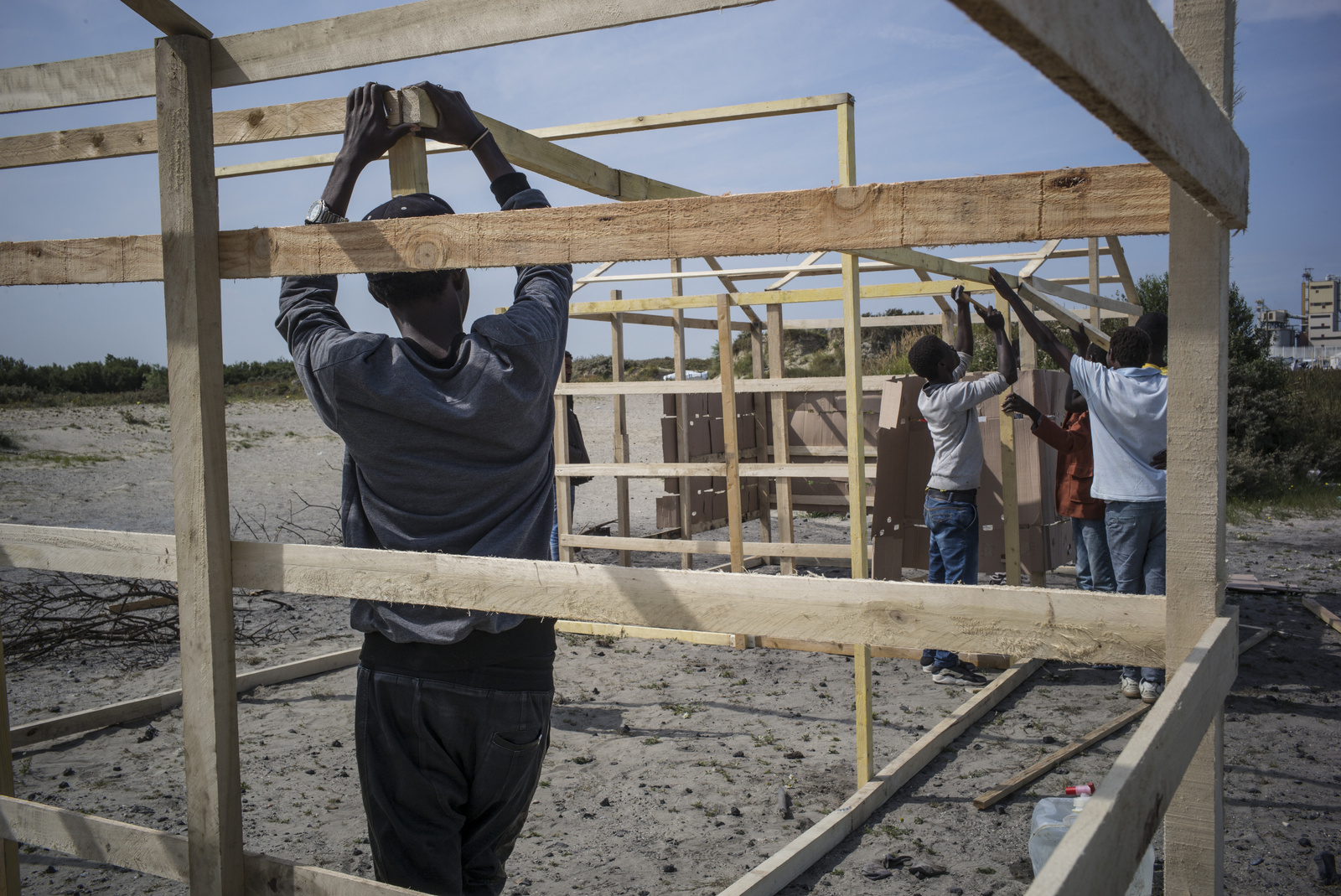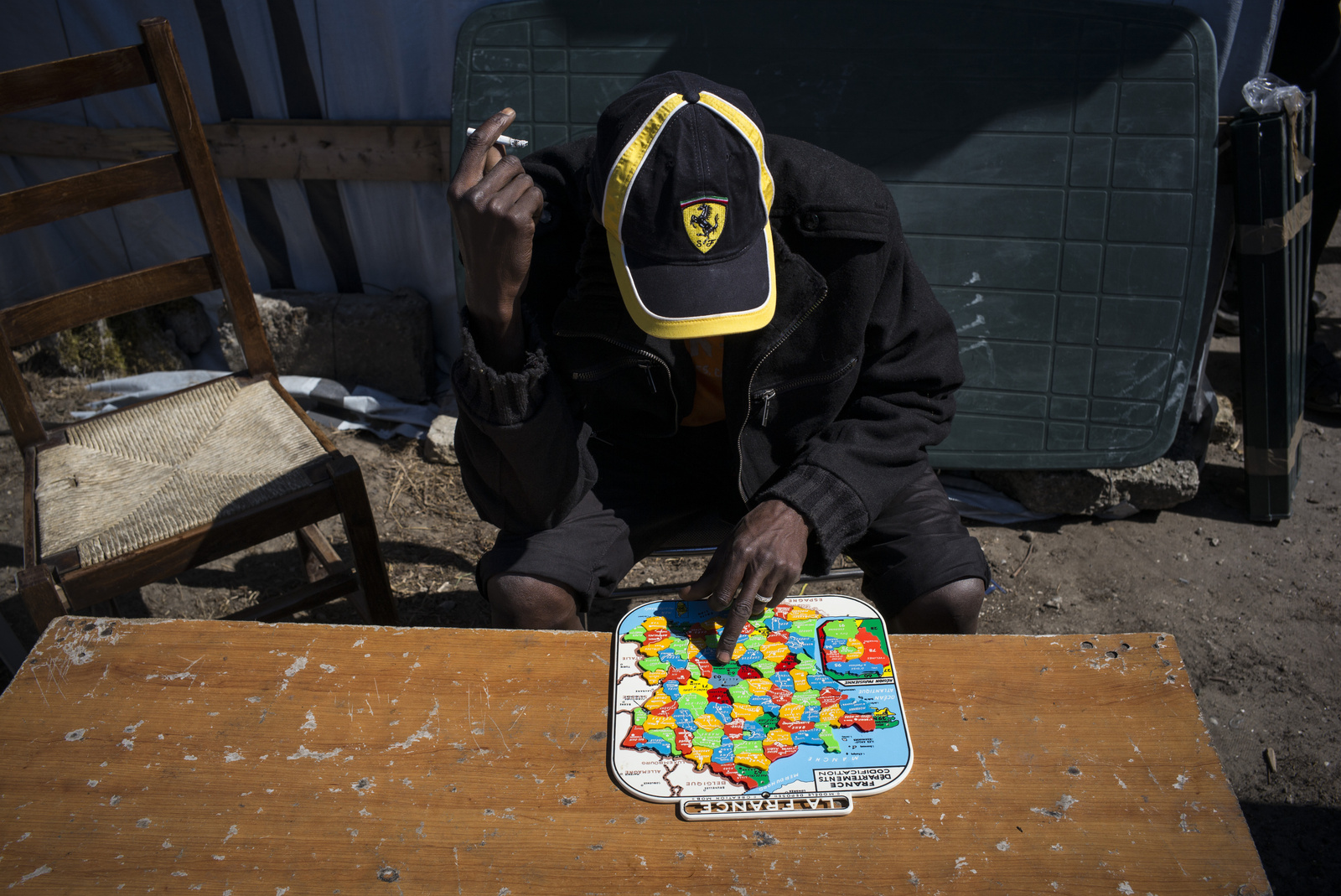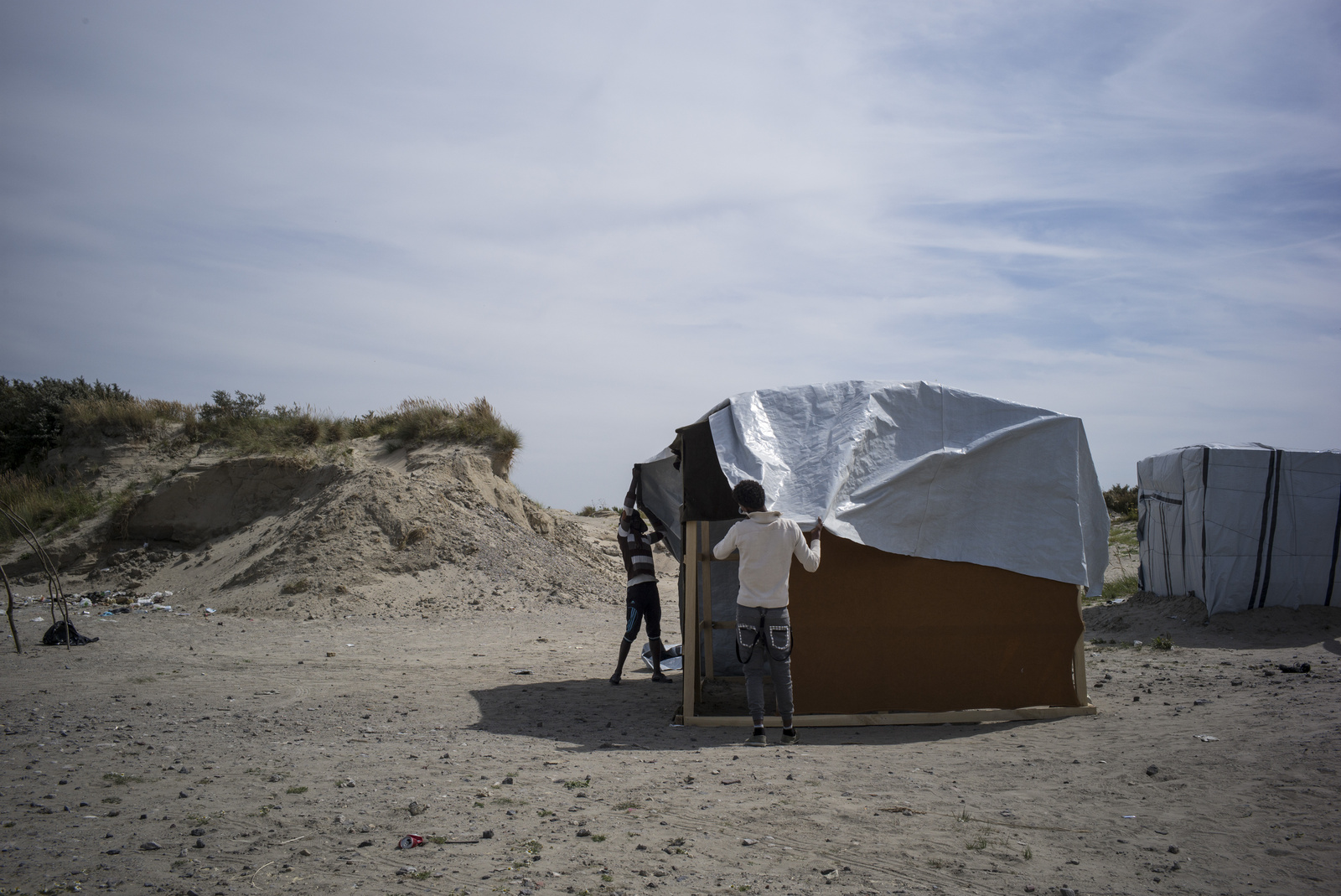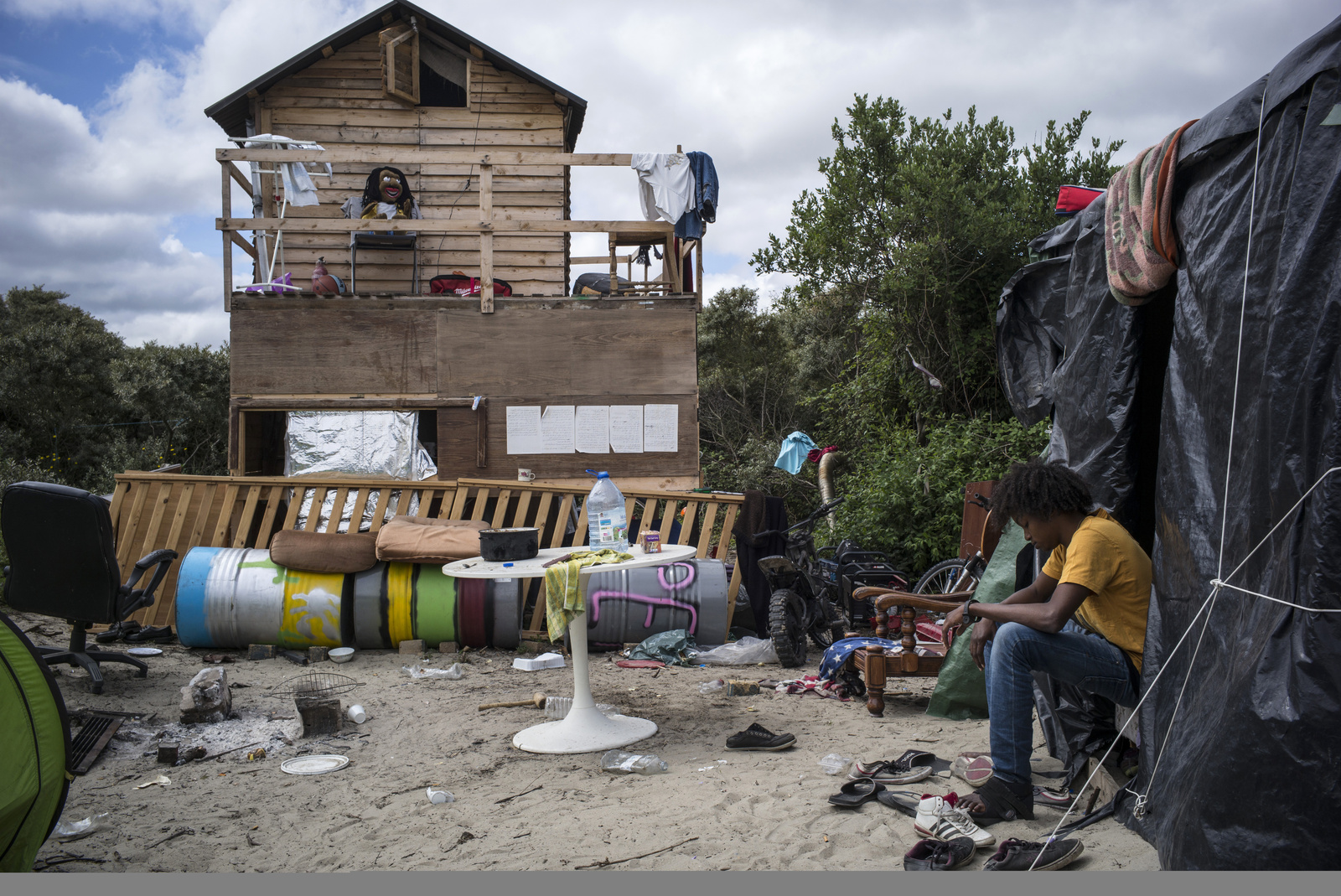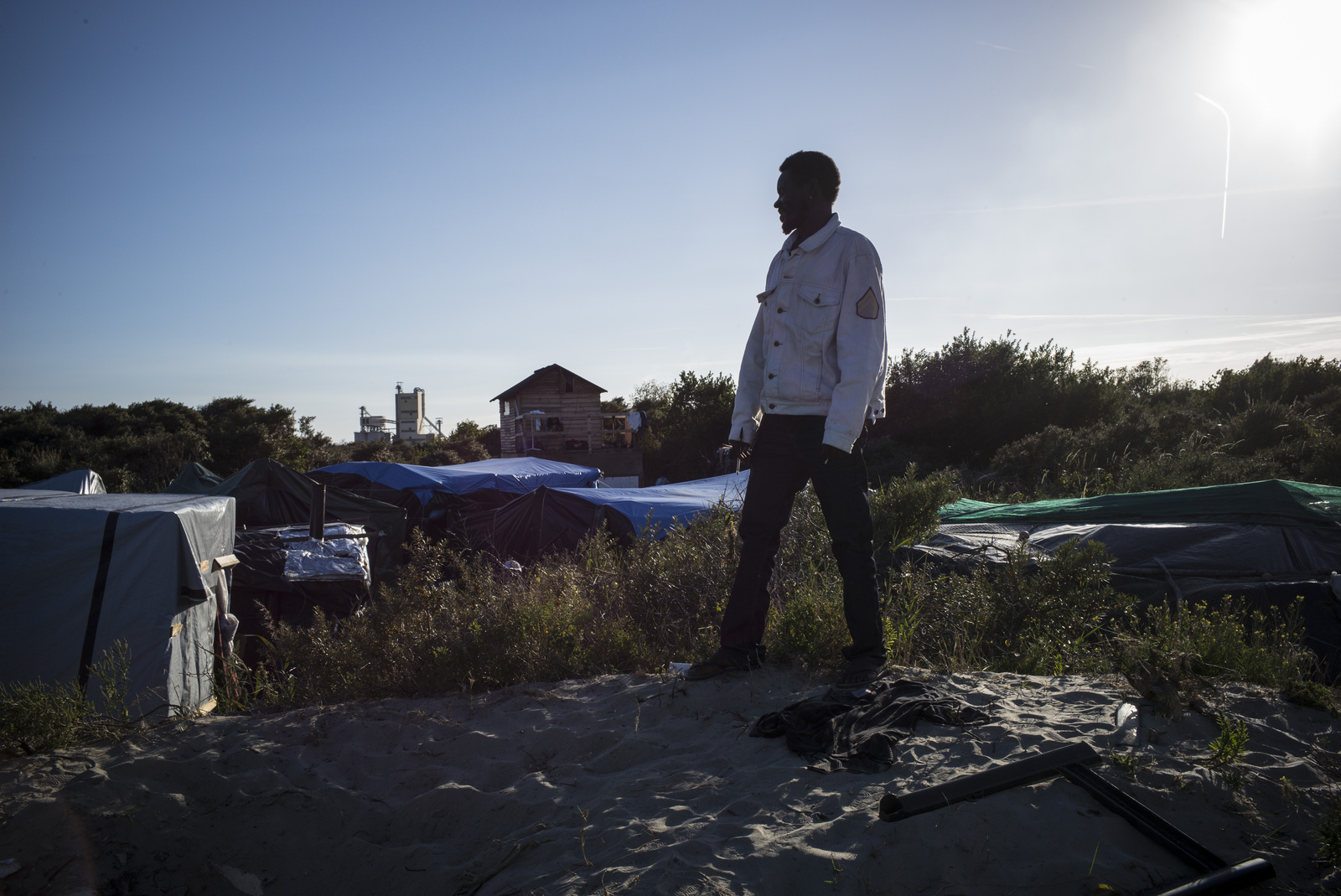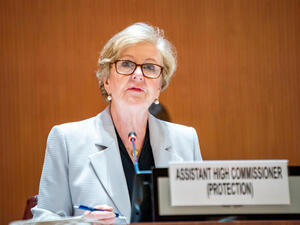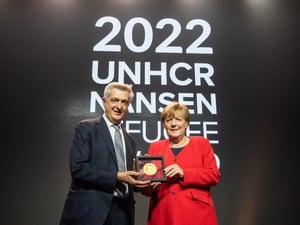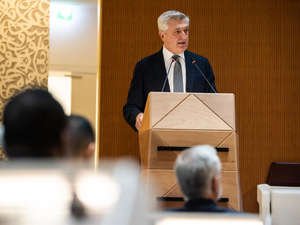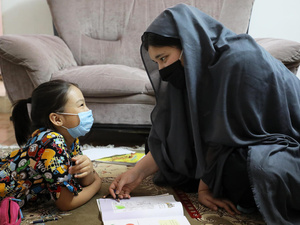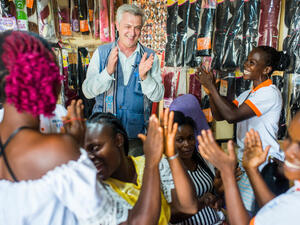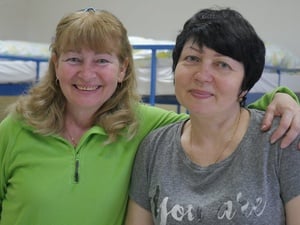Looking for safety and a better life in Calais' jungle
Looking for safety and a better life in Calais' jungle

Yacine, a 22-year old asylum seeker from Sudan washes tea cups in a makeshift shelter in the socalled jungle in Calais before his departure to an accommodation centre for asylum seekers. His friends have gathered to celebrate his departure.
CALAIS, France, Aug 8 (UNHCR) - It's nearly midnight while Farad*, Yacine* and a dozen other refugees sit around a fire and drink tea in a makeshift shelter in the so-called jungle in Calais. They talk about their flight from Sudan, their hazardous way to Europe and Calais, and their plans and hopes for the future.
It is Yacine's last night in the jungle and all his friends have gathered to celebrate his departure. Tomorrow morning at 6 am, he will leave Calais by train to Paris and then Metz where he has been allocated a room in an accommodation centre for asylum seekers.
Yacine arrived in Calais six months earlier after fleeing Sudan and making his way to Europe through Libya. He spent six months on the road and travelled by truck, boat and train before reaching Calais where he asked for asylum. He just had his first interview at the French Office in charge of Protection of Refugees and Stateless (OFPRA) and was allocated a room in an accommodation centre. One of his friends who has been in Paris before explains how he can go from Gare du Nord to Gare de l'Est in Paris where he will have to change train stations to take his train to Metz the next morning.
"I am sad and happy at the same time. Tonight I am sad to leave my friends in the jungle but tomorrow I will be happy when I will get accommodation in Metz," Yacine* tells me with a large smile.
Not all of his friends who are with him to celebrate his departure have the same luck as him. All say that they fled violence and conflict and tell stories of fear and flight, but they don't have solutions for their future. They say that their main need is protection.
Ibrahim*, 30 years old, arrived in Calais in November 2014. He is from Darfur in Sudan. He fled Sudan after being arrested and tortured and made his way to Europe through Libya and Italy before arriving in Calais. He had his fingerprints taken in Italy but did not want to stay there. His plan was to go to the United Kingdom (UK) where it would be easier for him language wise.
"When I arrived in Calais, I went to the squat. People told me that if I go to the UK, they will send me back to Italy and Italy will send me back to Sudan. Someone in the squat told me to ask for asylum here. I met Faustine and told her about myself. She informed me about the asylum procedures in France and helped me to make an appointment with a lawyer," Ibrahim says.
Faustine is a social worker for the French NGO France Terre d'Asile which has a program in Calais which is partly funded by UNHCR. She works in Calais and walks around the so-called jungle (or lande) every day to inform migrants and refugees about asylum procedures in France. She also helps them during the procedures and follows up with them if they have questions or face difficulties.
Since the beginning of 2015, almost 1,000 asylum applications have been filed in Calais.
"Many of the people who are staying in the lande in Calais are refugees. They fled conflict, violence or persecution in Sudan, Eritrea, Somalia and Syria and need international protection. They are part of the 225,000 people who arrived by the Mediterranean sea and entered Europe so far this year mainly through Greece or Italy," said Philippe Leclerc, UNHCR's Representative in France.
But the delays to file an asylum application in France and to access decent accommodation can take months. During this time, people like Ibrahim sleep in makeshift shelters in the Calais jungle. As he entered Europe through Italy, but did not want to apply for asylum in Italy, he had to wait six months to be able to ask for asylum in France. That delay linked to the Dublin Regulation just expired and he started the process to ask for asylum in France.
"I went to the Prefecture to ask for asylum in June. They gave me an appointment seven days later. They told me that I have to wait for an appointment to make an interview with OFPRA. Since then I wait. Maybe tomorrow or next week I will find a letter for appointment. Life here is very difficult," Ibrahim said.
Ibrahim has been living in a makeshift shelter in Calais since nearly one year, first in a squat and now in the jungle. He hopes to get an interview with OFPRA and a room in an accommodation centre soon.
"The French administration has increased its asylum related staffing since October 2014 and OFPRA has been examining claims in priority which led 1,000 persons to apply for asylum in Calais in 2015.
"Asylum in France should become the main alternative to irregular crossing of the Channel for those in need of protection. If persons have a close connection to another EU country the first Dublin interview made by the sous -préfecture should allow the identification that country and have the French officials submit a transfer of responsibility to that State. Delays to file asylum applications have to be shortened and asylum seekers should have a quick access to decent housing during the process ," added Philippe Leclerc.
Others don't have the patience to wait for months to claim for asylum in France and prefer to try their luck to cross to the United Kingdom.
Farad*, 26 years old, also fled violence in Sudan. He is one of Yacine's friends in Calais. He is happy for Yacine to get a room in an accommodation centre but he tells me that this is not for him because the delays to ask for asylum in France are too long and the chances to be granted asylum are too low. He prefers to try his chance to go to the UK. He has family there and speaks good English but no French.
"I arrived in Calais in May. Since then I stay here. The difficult thing is to keep running. I need to be protected and I want to ask for asylum in the UK. I did not ask (for asylum) in France, because I see the situation here. It is very long and many people are rejected," Farad said.
"I am trained in civil engineering and I want to finish my studies. It is very difficult for me to study or work here (in France). I need to talk to people to work but I don't speak French and know no one. In the UK I have family and I speak the language. I need to take a MASTERS and then I want to do a PhD. I am very ambitious. I am looking for something good," Farad concluded.
By Celine Schmitt in Calais/France
*Names changed for protection reasons.



